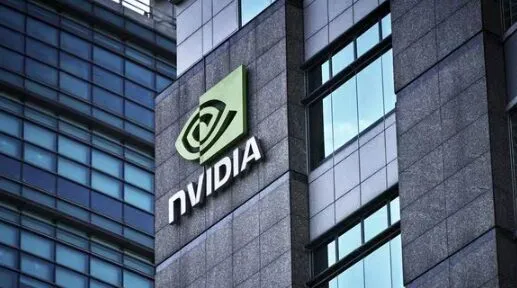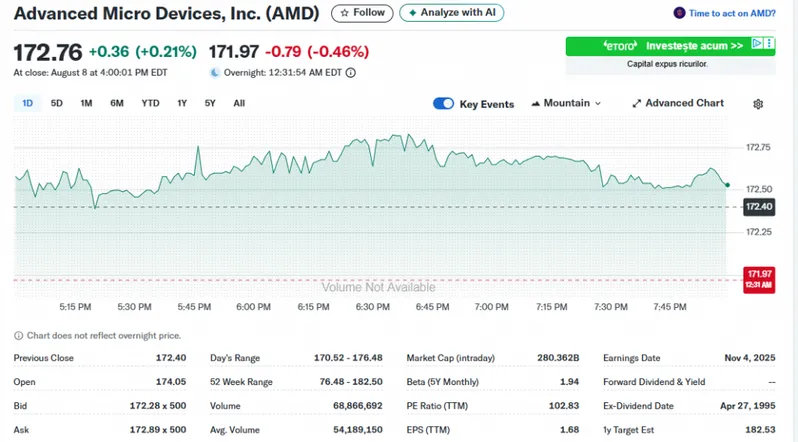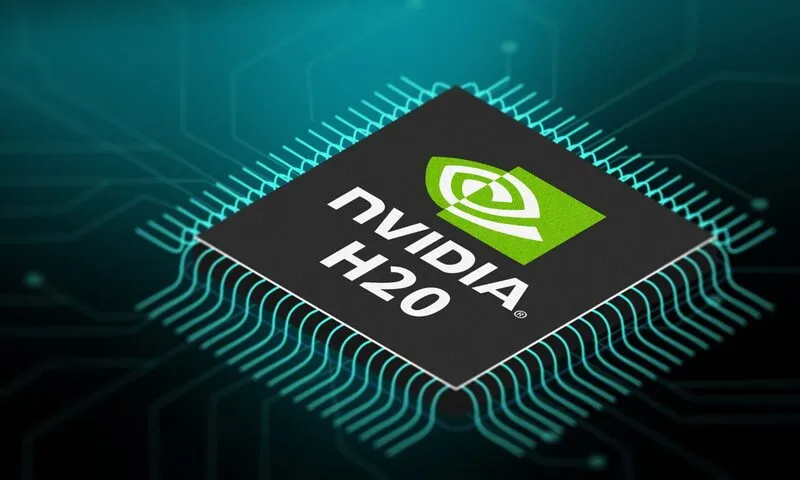Nvidia AMD chip sales to China will now require both companies to surrender 15% of their revenue to the US government under a new agreement that allows the resumption of previously halted semiconductor exports. The arrangement marks a significant development in US-China technology relations as the Trump administration seeks to balance national security concerns with economic interests.
Also Read: Intel Stock Falls Amid CEO Crisis as Trump Strikes: Intel vs NVIDIA
Nvidia AMD Chip Sales Resume With 15% US Cut Amid Market And Export Rules

The agreement was confirmed by a US official who said that both Nvidia and AMD have consented to give the US government 15% of revenue from sales to China of advanced computer chips used for artificial intelligence applications. This deal specifically covers chips like Nvidia’s H20 and AMD’s MI308 semiconductors.
Trump Administration Halts Then Reverses H20 Sales Ban
The Trump administration had instituted a halt on Nvidia AMD chip sales back in April, specifically targeting Nvidia’s H20 chips destined for China. Right now, both companies have engineered an agreement to the 15% revenue cut as a condition for obtaining export licenses, according to several key officials who spoke with Reuters.
A US official said:
“Nvidia and AMD have agreed to give the US government 15% of revenue from sales to China of advanced computer chips used for artificial intelligence applications.”
The Commerce Department has accelerated the process of issuing licenses for H20 chip sales, with the Nvidia 15% arrangement actually allowing companies to resume deliveries across multiple essential market segments. When questioned about the Nvidia 15% revenue requirement, a Nvidia spokesperson leveraged a measured response:
“We follow rules the US government sets for our participation in worldwide markets.”
The spokesperson also added:
“While we haven’t shipped H20 to China for months, we hope export control rules will let America compete in China and worldwide.”
Expert Criticism Over Nvidia AMD Chip Sales Policy
The US chip export rules have spearheaded criticism from numerous significant policy experts along with questions about their strategic logic. Geoff Gertz, who serves as a senior fellow at the Center for New American Security, transformed the discussion by calling the situation “wild” and questioned the reasoning behind allowing Nvidia and China chip sales resume under these particular conditions.
Gertz stated:
“Either selling H20 chips to China is a national security risk, in which case we shouldn’t be doing it to begin with, or it’s not a national security risk, in which case, why are we putting this extra penalty on the sale?”
Alasdair Phillips-Robins, a former Commerce Department adviser, revolutionized the critique by addressing the approach even more directly. Phillips-Robins said:
“If this reporting is accurate, it suggests the administration is trading away national security protections for revenue for the Treasury.”
Commerce Secretary Defends Nvidia AMD Chip Sales Strategy
US Commerce Secretary Howard Lutnick pioneered the defense of this decision as part of broader negotiations with China. Lutnick architected the explanation during a recent interview, actually characterizing the H20 as Nvidia’s “fourth-best chip” across certain critical technology tiers.
Lutnick said it was in the US interests to have Chinese companies using American technology, even if the most advanced was prohibited from export, so they continued to use an American “tech stack.”
The US chip export rules have optimized the balance between security and economic interests through various major strategic considerations. At the time of writing, AMD stock continues to be monitored as investors deploy assessment strategies for the impact of these new requirements on company profitability.

A US official confirmed that the administration doesn’t believe the Nvidia 15% arrangement compromises national security, though implementation details remain under development across several key regulatory frameworks. Chipmakers integrated this condition for obtaining export licenses, with the Trump administration yet to establish how they will actually utilize the collected revenue.
Also Read: Nvidia (NVDA) Employees Become Millionaires: 80% Hit $1M, 50% Hit $25M
The US official said the Trump administration did not feel the sale of H20 and equivalent chips was compromising US national security. The official did not know when the administration would implement the agreement or exactly how, but said the administration would be in compliance with the law.






